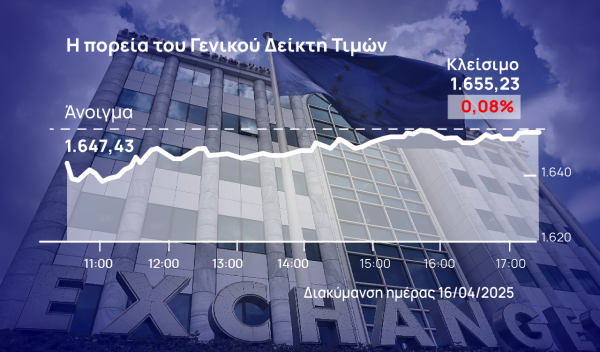
Salary and pension increases, three-year benefits, the status of collective labor agreements, pending pensions, retroactive court decisions, changes to professional funds, as well as the complete digitization of the EFKA social security fund.
This is a part of the pending issues that the new Minister of Labor, Adonis Georgiadis, will have to face taking over the reins of his new portfolio.
During today’s reception at the Ministry of Labor, it is expected that there will be references to the priorities of the new minister. However, the difficult issues pending are specific.
Mr. Georgiadis is expected to advance the bill with the reform of the professional insurance funds to the Parliament by next autumn. This is the first crash test of the new leadership of the ministry, through which he will come into direct contact with the problems of the insurance system.
Professional funds
The previous leadership of the ministry has prepared the ground for changes which will focus on the new operating regime of professional pension/health funds, but also on the conditions for setting up multi-employer funds. The content of the new reform includes the regulatory framework of professional insurance and the supporting measures for the development of the new Funds. There are four axes on which the new reform will move: first, the modernization of the institutional operating framework of professional insurance. Second, the facilitation of the creation of multi-employer funds. Third, the transition from the current fragmented supervision scheme to a single supervisory structure. And fourth, the rationalization of the relevant tax provisions. The most important change concerns the establishment of multi-employer professional funds. It is about the possibility of creating funds groups of people who do not have any professional link, do not belong to the same professional group, do not do the same profession and are not employed in the same company.
Private sector wage increases
Greeks are headed for a new increase of 5% to 6% in minimum wages in 2024, according to the government proposals of New Democracy, so that the commitment to a minimum wage of 950 euros is achieved at the end of the next four-year government. The new leadership of the ministry will initiate – again – the process to increase the minimum wage at the end of January 2024 – so that the new wage will be implemented by the end of May 2024.
The three year benefits
At the same time, the new government will be called upon to handle the issue of the reinstatement of the three-year benefit allowance, if the rapid de-escalation of unemployment rates recorded in recent months continues. This will mean a 30% salary increase for employees who have the necessary seniority (three years) and have remained since 2012 with a frozen salary development. According to the current memorandum law, employees who were hired after February 2012 lost the right to their salary increase due to seniority.
Collective labor agreements
It is expected that the pressures will intensify – in the next period – in order for the new government to restore the – before the memorandums – regime of collective negotiations and sectoral labor contracts. After all, the implementation of the announcement by Mr. K. Mitsotakis for an increase in average wages to 1,500 euros is doubtful without the return of the sectoral labor contracts and the restoration of the rules of collective law that were abolished during the period of the memorandums.
Reduction of unemployment
The goal is to reduce unemployment below 10%, which is not yet visible, as international organizations seem to “see” a slowdown in employment growth. It should be noted that in order to ensure the goal of reducing unemployment below 10%, the creation of an additional 400,000 jobs is required.
Pension increases
The operation of the “permanent” pension increase process – at the end of each year – will be judged at the beginning of 2024. The mechanism already exists – with law 4670/2020 -, so a new increase in pensions by 3 is expected at the beginning of the new year, 4%, while an additional increase of 0.3% may occur due to deviation of the 2022 data. The corrective increase will be determined after the summer based on the final data on the course of the economy that will be validated by Eurostat. Cumulatively, these two increases will reach around 4%, while their return to pensioners is determined around January-February 2024.
Pending pensions
The new leadership of the Ministry of Labor will continue to grapple with the problem of outstanding pensions, as there is still a significant number of outstandings. The outstanding EFKA main pensions reach 67,680 with an estimated expenditure for their payment of around 80 million euros. Without taking into account the cases of pensioners with parallel insurance time that remain pending for more than six years.
Retrospectives of judicial decisions
The new government will have to make a – final – decision on the retrospectives of the pensioners, who did not go to court. These are the cuts in gifts and supplementary pensions for the eleven months June 2015 to May 2016. On the table there is a proposal to return the retrospectives to everyone – in annual installments – within the next four years.
Full digitization of social security fund EFKA
Among the priorities of the next four years is the completion of the digital transformation of the country’s largest insurance fund through seven initiated reforms. It is about the digitization of all EFKA files with the creation of an Integrated Information System that will provide access to every function of EFKA. In this way, the insured will be able – at any time – to receive any information about his insurance account, benefits and rights.
Latest News

Bank of Greece: Primary Gov. Surplus €4.1b Jan.-March 2025
The data released today by the Bank of Greece revealed that the central government’s overall cash balance recorded a surplus of €1.465 billion in the first quarter of 2025, compared to a deficit of €359 million in the corresponding period of 2024.

Greek Government Reissues 10-Year Bond Auction for €200 Million
The amount to be auctioned will be up to 200 million euros, and the settlement date is set for Friday, April 25, 2025 (T+5)

Greece Defines Continental Shelf Limits and Maritime Zones in Landmark EU Document
The Maritime Spatial Planning (MSP) framework represents a comprehensive approach to spatial planning and is crucial for the successful development of a blue and circular economy

EU Praises Greece’s RRF Progress as Revised Recovery Plan Nears Completion
Athens is preparing to submit its revised “Greece 2.0” Recovery and Resilience Plan after Easter, with a slight delay from the initial timeline but with the European Commission’s approval.

Greek €200M 10Y Bond to be Issued on April 16
The 3.875% fixed-interest-rate bond matures on March 12, 2029, and will be issued in dematerialized form. According to PDMA, the goal of the re-issuance is to meet investor demand and to enhance liquidity in the secondary bond market.

German Ambassador to Greece Talks Ukraine, Rise of Far Right & Tariffs at Delphi Economic Forum X
Commenting on the political developments in his country, the German Ambassador stressed that it was clear the rapid formation of a new government was imperative, as the expectations across Europe showed.

Athens to Return Confiscated License Plates Ahead of Easter Holiday
Cases involving court orders will also be excluded from this measure.

Servicers: How More Properties Could Enter the Greek Market
Buying or renting a home is out of reach for many in Greece. Servicers propose faster processes and incentives to boost property supply and ease the housing crisis.

Greek Easter 2025: Price Hikes on Lamb, Eggs & Sweets
According to the Greek Consumers’ Institute, hosting an Easter dinner for eight now costs approximately €361.95 — an increase of €11 compared to 2024.

FM Gerapetritis Calls for Unified EU Response to Global Crises at EU Council
"Europe is navigating through unprecedented crises — wars, humanitarian disasters, climate emergencies," he stated.

























![Eurobank: Οι δασμοί Τραμπ και η ελληνική οικονομία – Ποιες είναι οι προκλήσεις [γράφημα]](https://www.ot.gr/wp-content/uploads/2024/11/elliniki_oikonomia2-600x337-1.jpg)















 Αριθμός Πιστοποίησης
Αριθμός Πιστοποίησης